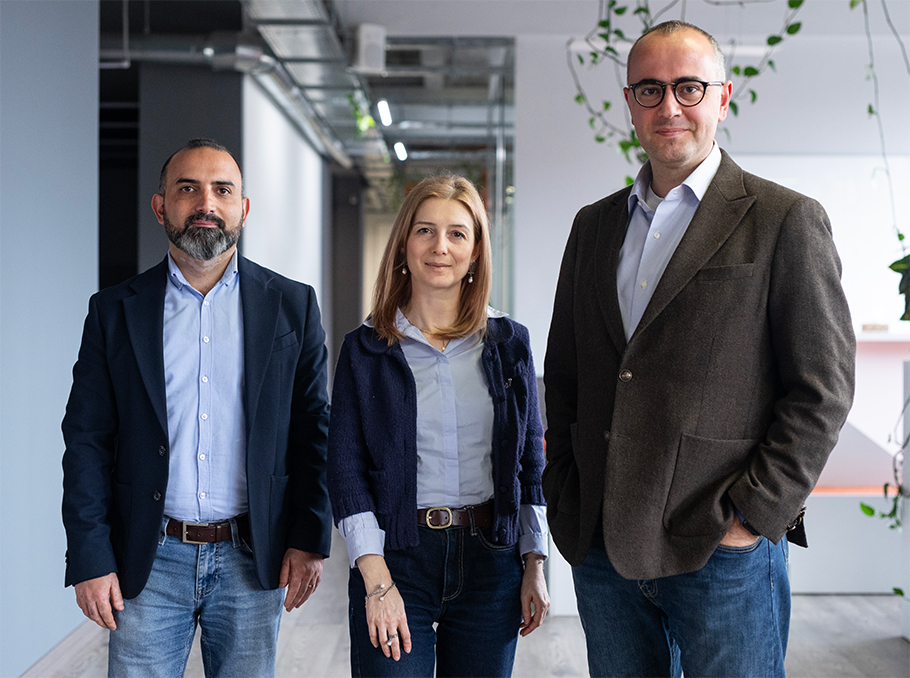“To help a person who has endured survival challenges to believe in himself again, to revive, strive and then thrive and get a “second chance” in life.”
This is the mission behind the Armenian Spiritual Revival Foundation, which was established by the vision of the Armenian-American entrepreneur, innovator and philanthropist Dr Noubar Afeyan, with the blessings of His Holiness Karekin II, the Supreme Patriarch and Catholicos of All Armenians following the 2020 war.
The Spiritual Revival Foundation adopted the mission to enable psycho-spiritual revival for the people who have suffered the direct and indirect consequences of the war through combining state-of-the-art methods in psychological counseling with the Armenian survivalist experience and the traditions of the Armenian Church.
In an interview with Mediamax, Executive Director of the “Armenian Spiritual Revival Foundation” Hovhannes Nikoghosyan, Mental Health Projects Manager Hripsime Khanzadyan, and psychologist Tigran Dovlatyan reflected on the Foundation’s work, results, and their innovative methods.
“Combining psychology, history, and spiritual values”
Hovhannes Nikoghosyan, Executive Director
After the 2020 war, we realized that many people directly or indirectly suffered its consequences and needed the best psychological support.
Noubar Afeyan’s vision was behind the establishment of the Armenian Spiritual Revival Foundation. It operates in cooperation with the Armenian Apostolic Church, with the blessings of the Catholicos of All Armenians.
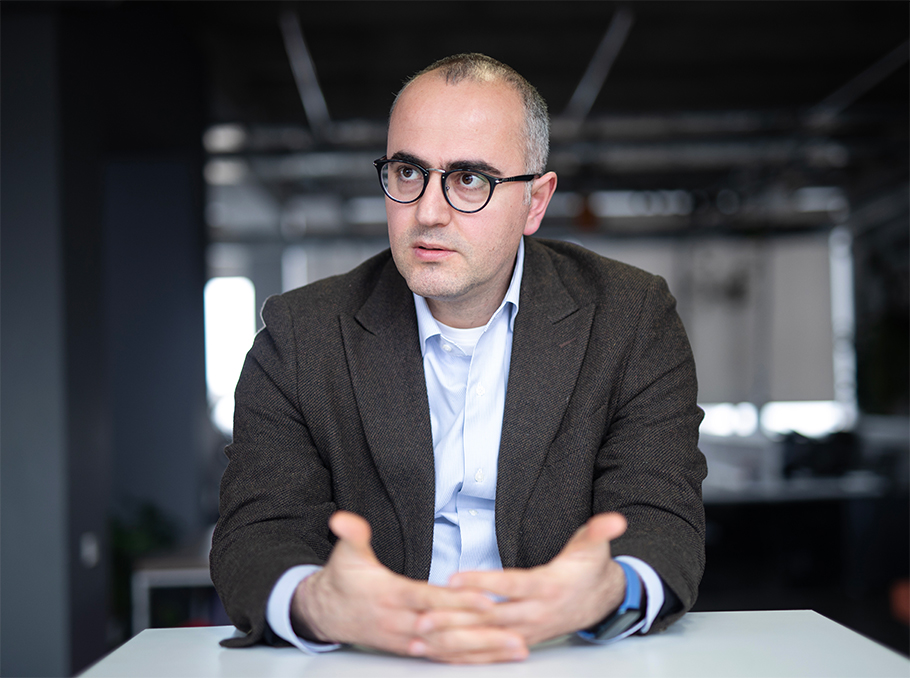 Hovhannes Nikoghosyan
Hovhannes NikoghosyanTo better help the participants of our programs, we have developed a completely innovative psycho-spiritual revival program, which combines psychology as a science, the people’s unwavering resilience throughout history, as well as the church and spiritual values, which have helped preserve our identity for centuries.
Not only individuals who were directly affected by the war, but also those whose lives were uprooted following these events can become program beneficiaries.
Currently, 34% of the program participants are our compatriots from Artsakh, 30% are frontline professionals, including volunteers, journalists, social workers.
“Out of 10 000 people who have passed the test, 41.6% suffered moderate to severe depression”
Hovhannes Nikoghosyan
Before launching the support project, we needed statistical data to understand the situation. At the same time, people whose lives had changed as a result of the war needed professional evaluation.
For this purpose, we launched anonymous psychological tests on our website, allowing people to self-evaluate their mental health state. The tests have been approved by the Faculty of Personality Psychology of the Yerevan State University. Data collected from December 2023 to May 2024 showed that out of 10 000 people of different genders and ages tested in different parts of Armenia, 41.6 % had symptoms of moderate or severe depression.
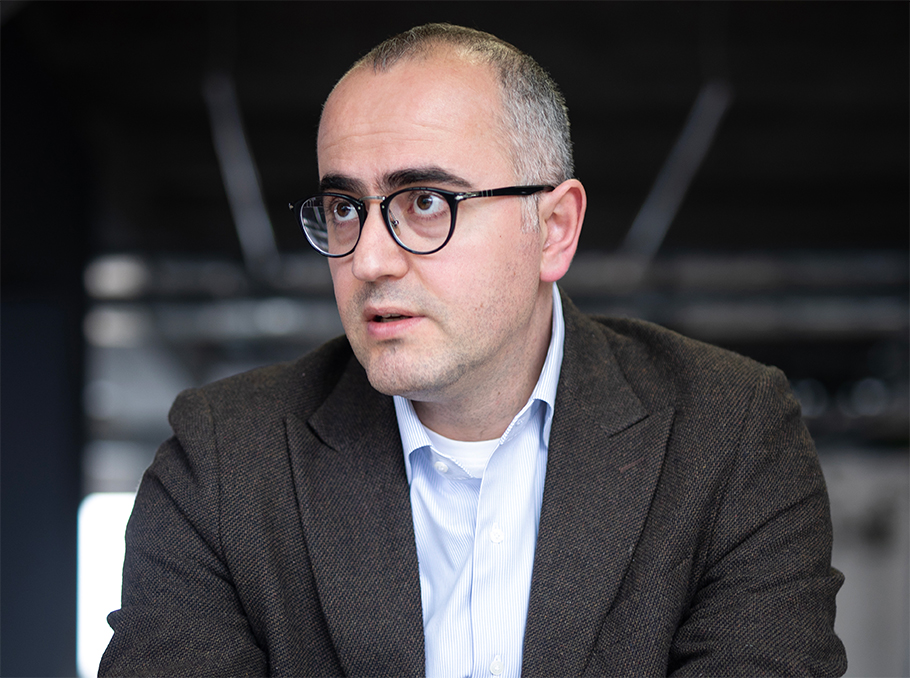 Hovhannes Nikoghosyan
Hovhannes NikoghosyanThe last stage of the program involved 550 people from Yerevan, Gyumri and Vanadzor, and 91.7% of the participants who were in an extremely difficult situation reported positive changes after the first 6 weeks of the program. I think this is a good example for people in need of psycho-spiritual support and healing, but lacking confidence.
Instead, we constantly hear the same questions: “How can a program help me?”, “Is there any point in applying?”
“To remind a person that the strength lies within you”
Hripsime Khanzadyan, Foundation’s Mental Health Projects Manager
The Spiritual Revival Foundation's flagship project, labeled “Armenian Revival Journey”, offers a three-month group-based engagement where participants can benefit the three-step psycho-spiritual revival program: “Revive, strive and thrive”.
Revive is the starting point of the Armenian Revival Journey, offering a 6-week intensive psychological group support program, involving participants who based on the test results have shown signs of severe PTSD. The group participants are guided by trained mental-health experts in a weekly 2-hour or 2,5-hour sessions. As it was already stated, after these 6 sessions, 91.7% of the participants report positive changes.
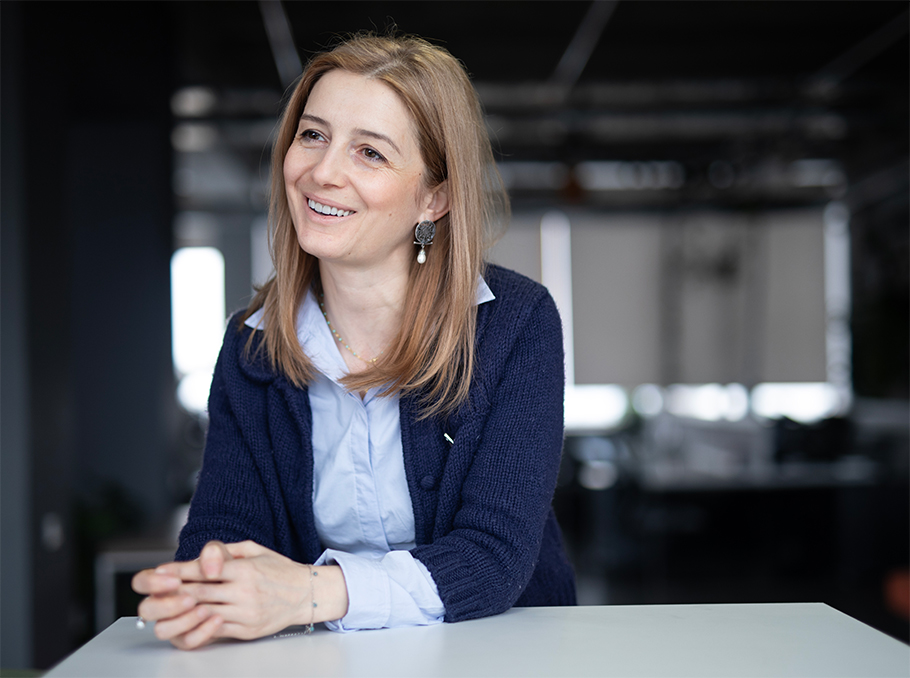 Hripsime Khanzadyan
Hripsime KhanzadyanIn our follow-up conversations, many participants noted that they had no idea how it was possible to discover one’s own self through such meetings. The method of a group work is particularly important in this case, since the individual sees that he is not alone in his experiences, there are people with the same or similar feelings next to him. Thus, a sympathetic, trustworthy community is formed, and being part of the community is important.
Strive is an intensive psycho-educational two-day program that follows the “Revive” program. It is an innovative support method combining psychology, history, and spiritual values, with an emphasis on history, both personal and family as well as general and national.
On the first day of the program, participants unveil another, more powerful story of their life by drawing the Tree of Life. They emphasize the power of roots, understanding that memory is a value and a driving factor. Many people at this stage said that they had dreams and goals that they had lost along the way. We help them to remember those dreams and goals and create new ones.
Every person has values and character traits deep inside that have given them strength along the way but have gone unnoticed. Our goal is to “shine a light” on these very moments and turn them into a daily tool for withstand difficulties.
Throughout this process, we witness the enthusiasm of the participants, how a previously shy and nervous person becomes more talkative and bolder, expresses his own opinion and is not afraid to picture the future.
Thrive is the culminating milestone of the three-month program, a 4-hour beautiful event, during which the graduates are joined by friends and family. This is important because they are the ones who notice and record changes in a person.
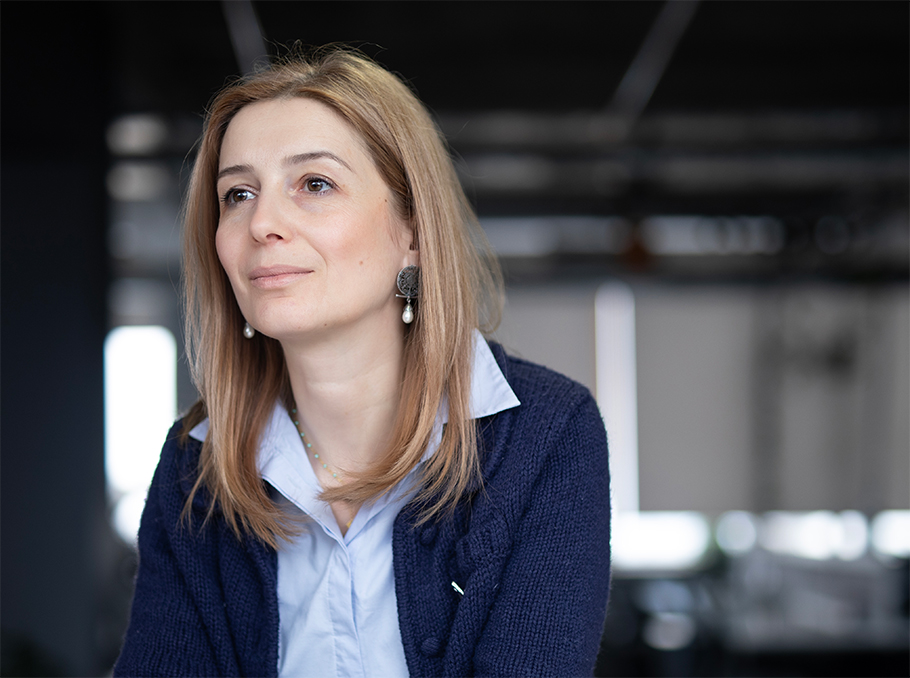 Hripsime Khanzadyan
Hripsime KhanzadyanPeople who have endured terrible hardships willingly share their stories in front of the entire room on this day and assure us: “we have important goals for the future.” One day, for example, one of the participants saw a piano in the room, sat down and began playing her favorite melodies, and her excited husband said: “Today, I found my wife again, for 5 years after the war, she had not even come close to the piano.”
The goal of the program is to foster a caring, compassionate and supportive community by reminding people that “the strength lies within you.”
“Reactivate our internal coping mechanisms”
Tigran Dovlatyan, psychologist
War, as a disaster, has affected all of us, but we must proceed from the fact that people have ability to self-recovery, regardless of whether they are being helped or not. This is why out of conventional 1000 people who have expeerienced the same situation, only 50 or 100 may need support.
In the first, revival stage, we work on restoring person’s defense mechanisms that were undermined during the war.
 Tigran Dovlatyan
Tigran DovlatyanThe main direction on which we build our work is narrative psychology. It emphasizes the person’s story, highlighting the positive episodes of their life, activating the sense of belonging and being part of a community.
Each of us has internal coping mechanisms that for some reason become suppressed over time. One of our main goals during the meetings is to reactivate them.
“There is a stereotype that a man should be tough and not express emotions”
Tigran Dovlatyan
At some point in our work we realized that there was a need to hold group meetings only for men during the sessions with the psychologist, because there are a number of restraining factors in our society keeping men from participating in such programs. Since we wanted to create an environment of trust and safety for everyone, we decided to work with men individually as well as in mixed groups.
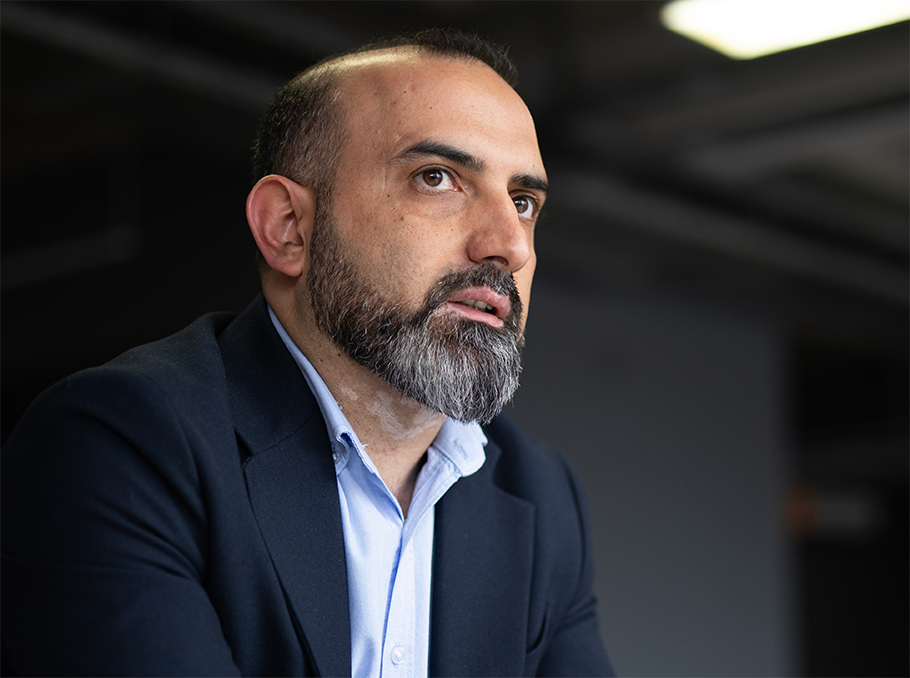 Tigran Dovlatyan
Tigran DovlatyanThere is a stereotype in society that a man should be tough and not express emotions: “if I express strong joy or, even more so, sadness, it means I am weak.”
Another obstacle is that in our society, men are the main providers of the family, and often they do not have the time to look after their own mental health. Through our program we try to solve this problem by scheduling group meetings on days off or outside of working hours.
Another obstacle, which I think is the most important one, is that disasters such as war have a very strong impact on human psychology, suppressing defense mechanisms. In order to somehow cope with the pain, we begin to suppress emotions. Men who rarely talk about war and their experiences constantly keep these emotions bottled-up in the back of their mind. They become apathetic and at some point stop feeling or recognizing emotions at some point. This often leads to hopelessness, and taking into account all these factors, men do not attach importance to professional support and are convinced that nothing can help them.
However, I have to day in this regard that there were psychologists during the war who used a wrong approach at that extremely vulnerable moment, which led to a lack of trust in specialists.
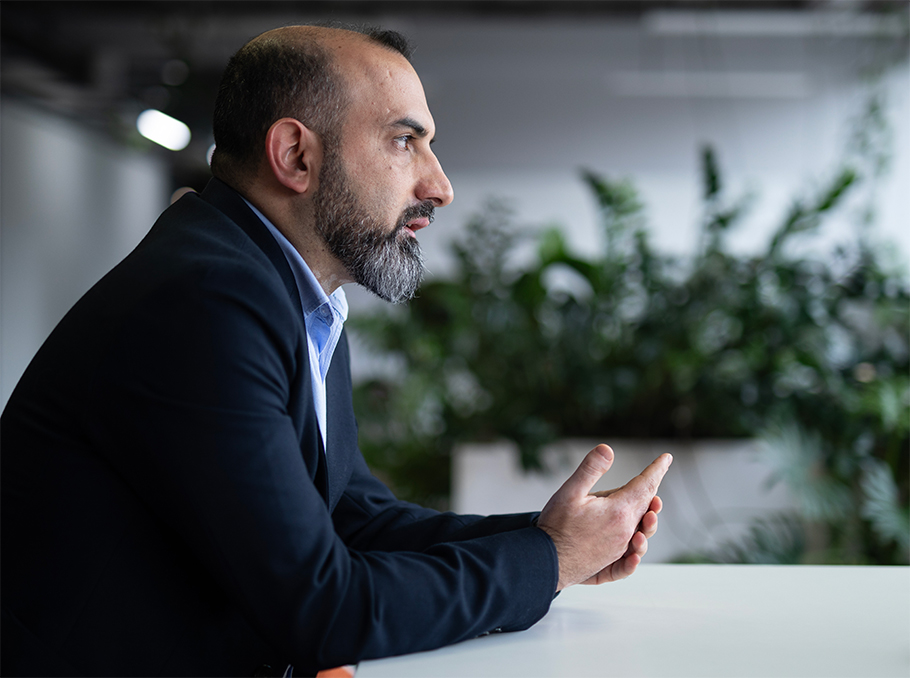 Tigran Dovlatyan
Tigran DovlatyanAs for our groups, each of them consists of 10-12 participants. Obviously, the meetings are confidential, and what is discussed and shared within the group remains confidential. We decided on group sessions because it is very important for the participants to have a safe environment where they are heard, understood, and empathized with. The first step is extremely important, the realization that you need help. Many join the program on their own initiative, some are encouraged by relatives, others learn about it from friends. But it is important to understand that no matter what path led a person to get support, if they are at the meeting it means they have taken the first important step.
Of course, there are cases when people stop attending the sessions after the first meeting, which can be explained from a professional point of view: at the first meeting they realize that the path they have embarked on is difficult, and touching a sore spot cannot be easy. In this case, if a person is not ready for this process yet, he can find a thousand reasons not to continue. Moreover, the same is true in individual practice. In our case, the number of those who leave the program is quite small, and the percentage of those who achieve positive results is quite significant.
“Giving a person an opportunity to choose their future”
Hovhannes Nikoghosyan
We have created a unique method and a program with the best international and Armenian specialists. By combining spirituality and psychology, we help people who endured survival challenges to believe in themselves again and get a “second chance” in life, so to speak.
We have also committed to strengthening the professional community of psychologists, who are trained within the framework of the program.
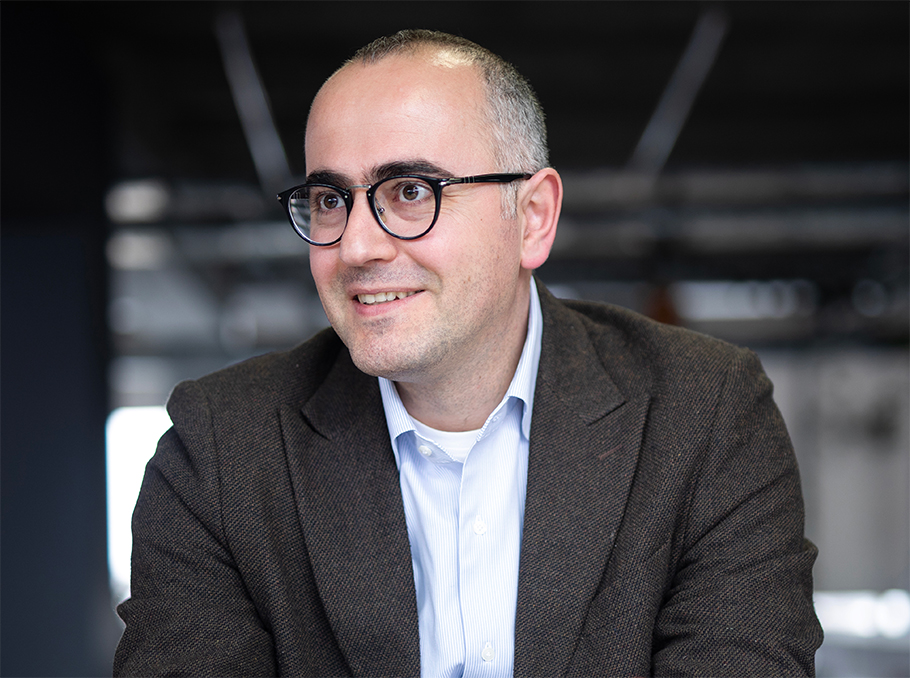 Hovhannes Nikoghosyan
Hovhannes NikoghosyanOur goal is to expand the program, making it available in other corners of Armenia besides Gyumri, Yerevan and Vanadzor, as well as abroad. The combination of psychology, spirituality and historical experience is an innovation on also an international level. Unfortunately, there are many wars in the world, and hundreds of thousands of people who need rehabilitation bear their consequences.
It is vital to understand that when we talk about historical experience, we are not talking only about this or that historical fact or reality. It could be a story of someone who has previously endured similar crises, overcome them and achieved success. Such examples empower us in difficult times.
We want to remind people that they have many merits and points of support both in the history of both their country and their own lives. This is where we need to find strength, overcome difficulties and move towards the future. Our program is trying to give people the opportunity to choose their future.
Yana Shakhramanyan
Photos by Emin Aristakesyan









